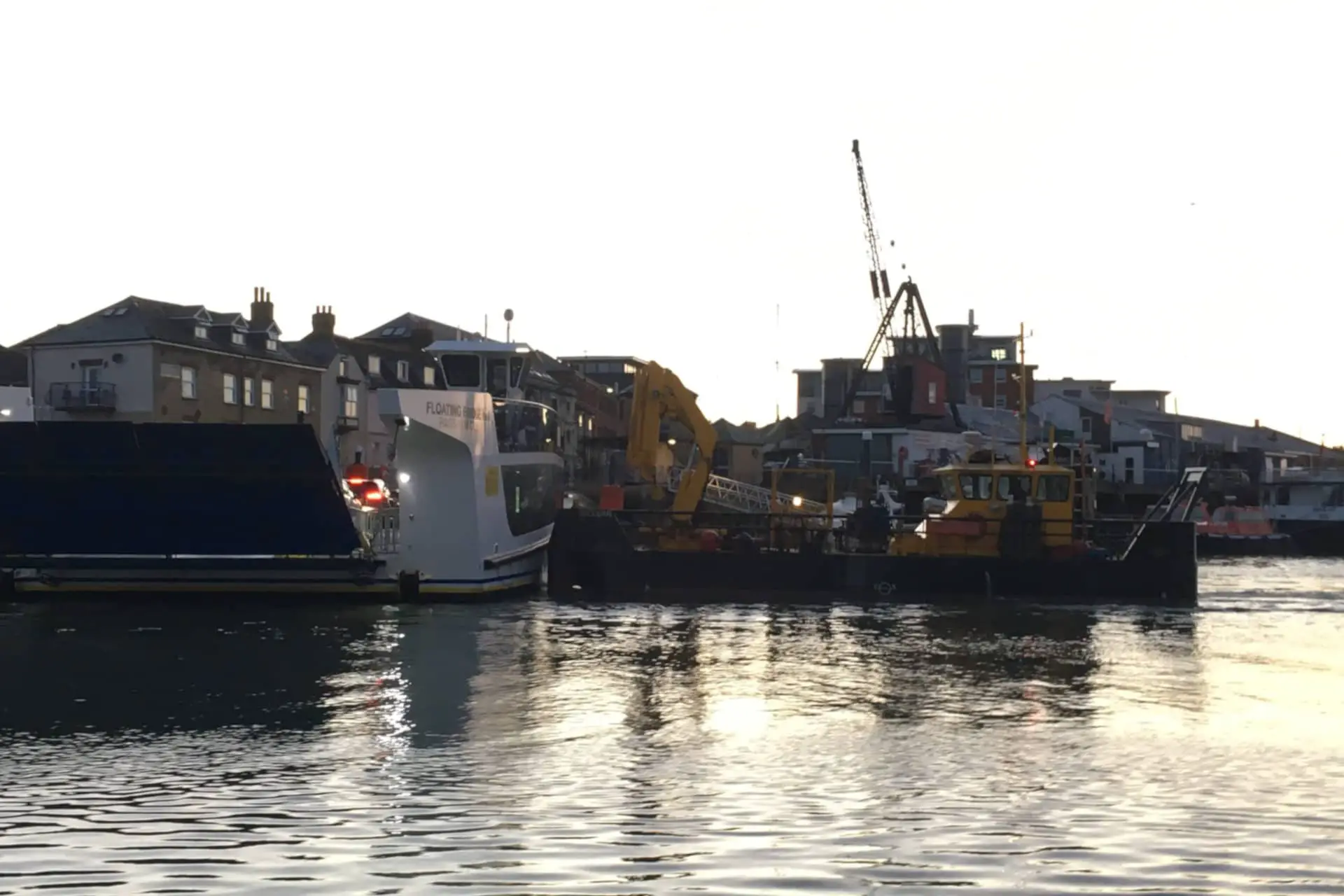More than £1 million is being spent on a boat pushing the Floating Bridge 6 across the Medina between 2019 and 2027.
The Isle of Wight council is, however, looking at other solutions to keep the vessel going during the faster tides.
Allows the bridge to operate
The push boat service was introduced by the authority, after an issue arose with the chain depth of Floating Bridge 6.
It allows the service to keep operating during fast-flowing ebb tides, maintaining clearance over the chains, instead of stopping the crossings.
Two contracts so far
Since 2019, there have been two contracts — both awarded to Cowes Harbour Commission, to use its barge MV Seaclear.
MV Seaclear also operated, without a contract, but through negotiations between the parties, in 2018, said at the time by the council to be a short-term measure.
Costs
The first contract was between 30th June 2019 and 30th April 2020 costing the authority £138,365.
The second is between 16th August 2020 and 30th September 2022 at a cost of £252,000.
Third contract
Now, a third contract has been put out to tender by the council for the same service — with the closing date for applications of 17th August.
For a price tag of £658,160, the three-year contract will keep the push boat in service between 1st October 2022, and 30th September 2025, to be used whenever it is needed.
Extension to 2027
There is also the possibility of extending the contract, should the council wish, for a further two years until 2027 — but increased in increments of six months.
The contract is asking that those who apply have an adequate vessel without the need for any modifications to any part of FB6.
Recovering the costs
Overall, the three contracts will cost the council £1,049,525.
To make that money back, according to the prices on the council’s Floating Bridge Website, it would take 699,683 foot passenger return journeys or 437,302 cars to use the Cowes to East Cowes crossing.
Legal mediation
The Isle of Wight Council said it was not possible to comment further on the matter while discussions were ongoing with all the stakeholders involved in the operational delivery of the Floating Bridge service.
This article is from the BBC’s LDRS (Local Democracy Reporter Service) scheme, which News OnTheWight is taking part in. Some alterations and additions may have been made by OnTheWight. Ed





